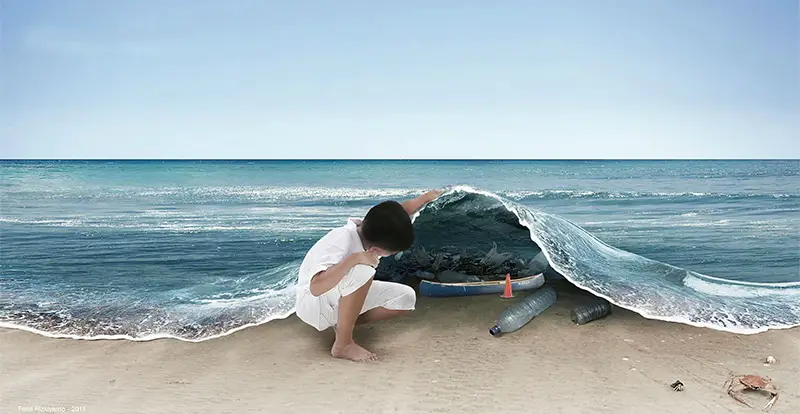Why water is more than just a ‘drinking’ problem
Water is everything. Literally. Besides being the lifeblood of the planet’s biological species, it is also used to produce everything we as humans make and consume.
In recent times, the Western Cape has faced the possibility of running out of potable water. Many people in this region are now much more aware of how fragile this resource is. Yet few really think about the water footprint of the items we use every day.
Plastic has been under the spotlight when it comes to the environment, but it also plants a deep footprint in our relationship with water. As households started buying water to stockpile – mostly in plastic containers – the concerns over plastic seemed to take a back seat to the need for usable water.
But it’s worth noting the broader impact of single-use plastic in the water context. Watercalculator.org reports that it takes at least double the volume of water contained within a plastic bottle to make the bottle itself. In fact, says the organisation, it takes more than 80 litres of water to make around 500 grams of plastic.
New thinking
It’s clear that new approaches are needed, both in private and in public spheres. Fortunately, some are already applying new strategies to their water supply.
The organisers of the 2018 Sanlam Cape Town Marathon needed a solution to the problem of the event’s potential impact on municipal water usage, and were determined to reduce the use of single-use plastic. They enlisted Bluewater Africa, a company specialising in water purification, to provide mobile water refilling stations along the route.
Participants were then invited to bring and reuse their own hydration packs and bottles, filling up at the provided water stations. This new thinking saved the use of 13 000 water sachets or 2600 standard water bottles, and Bluewater’s patented purification technology provided the purified water from a non-municipal source, further reducing the impact on Cape Town’s water resources.
The Bluewater technology is also being made available to homeowners and commercial entities like restaurants, guesthouses and winery tasting rooms, in the form of the Bluewater Pro water purifier. The Bluewater Pro is a state-of-the-art water purifier that cleans water of practically all known contaminants, including lead, chemicals and micro-plastics, to provide a fresh, palate-pleasing taste.
Partnerships take it a step further
Handicraft and design show KAMERS/Makers have gone a step further in a partnership with Consol Glass and Bluewater Africa. Show attendees received a free consol glass bottle, which they could use throughout their visit to refill at Bluewater Africa’s water stations.

James Steere, co-founder of I-Drop Water and Executive Director of Bluewater Africa, believes that the Consol partnership shows how people can take things a step further in their own water usage. “Glass is fully recyclable, unlike many plastics. Consol came to the party and provided a vessel that eliminates the single-use plastic problem at KAMERS/Makers. Combined with the Bluewater system’s ability to completely purify non-municipal water from boreholes, natural sources or even rainwater, you can see how a water footprint can be dramatically decreased.
“So we’re really looking to address the problem from as many angles as possible: impact on municipal water supply, providing pure, healthy water, and eliminating harmful environmental factors, especially single-use plastics.”
Through this initiative, more than 7300 liters of water was supplied over the 6 days, with an estimated use of 14 600 plastic water bottles prevented at KAMERS/Makers.
The message seems to be quite straightforward: Saving water means looking at your footprint use as a whole. Eliminating single use plastics is a given. But use of fully recyclable substances like glass, bringing your own vessels wherever able, and looking to water supply solutions like water purification systems are definitely worth looking into.
For more information, visit: www.bluewater.africa





